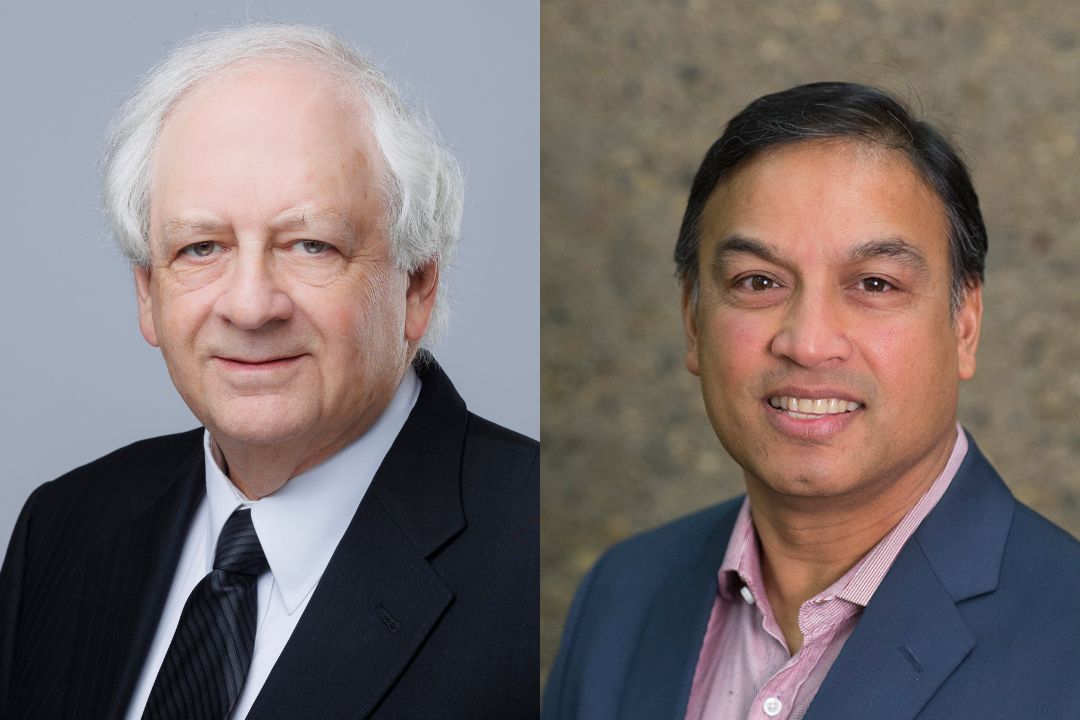
Celebrated USask medical researchers named Canadian Academy of Health Sciences fellows
SASKATOON - University of Saskatchewan (USask) researchers Dr. Alan Rosenberg (MD) and Dr. Nazeem Muhajarine (PhD) were named members of the Canadian Academy of Health Sciences (CAHS) in recognition of their work in the greater health sciences community.
Both Rosenberg and Muhajarine were recipients of CAHS fellowships and are now part of the organization which seeks to “provide independent, objective, evidence-based analyses of health challenges that inform both public and private sectors in decision-making about policy, practice and investment,” per the CAHS website.
Rosenberg eager to share knowledge, push important stances on children’s health
Rosenberg, a distinguished professor of rheumatology with USask’s Department of Pediatrics in the College of Medicine, said being awarded a CAHS fellowship gives him an opportunity and a platform to mobilize important medical ideas on a national stage.
Those appointed to a CAHS fellowship are able to collaboratively access and advise on issues relevant to the general public. Rosenberg has long been a champion of child health care, with many years of experience as a pediatric rheumatologist. He said looking ahead to working with other members of CAHS and connecting with health science professionals across the country would be a valuable experience.
“I think that bringing together a group of health scientists from eclectic backgrounds and varied perspectives will really be energizing,” he said.
As the health care landscape continues to change, Rosenberg said there needs to be a change in how disease modelling is done. The typical progression is detection, diagnosis and treatment, but Rosenberg believes that needs to change to increase focus on prevention instead of just post-diagnosis treatment.
“Prevention should be a priority,” Rosenberg said. “The most magnificent advances in medicine, that have had the most enduring societal benefits, have been discoveries that have resulted in preventing disease. And by understanding the earliest origins of disease, we can empower people and communities to promote their own health and guide prevention strategies.”
Accolades don’t change the way Rosenberg operates as a health-care professional, and he emphasized that an accolade like the CAHS fellowship does not happen in a vacuum. Rosenberg lauded the various colleagues and teams he’s worked with over the years and the patients and families who have inspired him, noting that those who supported him and his work are “equally deserving” of credit.
Recognition “an honour” for Muhajarine, who’s ready for opportunity to contribute
Like Rosenberg, Muhajarine was quick to credit those he’s worked with for his continued success. He said he has had the benefit of “working with great people” over the years who have helped him grow as a researcher – and now, a CAHS member.
“This is a recognition of not just one person, it is a recognition of a lot of people who have worked with me and contributed to the work I do,” he said.
A professor of community health and epidemiology with USask’s College of Medicine and the director of the Saskatchewan Population Health and Evaluation Research Unit (SPHERU), Muhajarine has been with USask since 1997.
Muhajarine’s research areas have focused primarily on the areas of population and community-based health. Over the past few years, Muhajarine has been recognized for his work regarding COVID-19 public health measures, vaccination, testing, and more.
Because the CAHS organization is dedicated to analyzing and evaluating health challenges in the country, Muhajarine said he was looking forward to collaborating with a variety of colleagues and finding another channel to reach audiences for his research.
He said being granted a CAHS fellowship brings him into an “esteemed” group of researchers working on health care research throughout Canada.
“It’s certainly an honour,” Muhajarine said. “It inspires me to want to do more. Rather than just sit on my laurels or anything like that, I feel more inspired with the vote of confidence … I have developed some expertise and knowledge, and when (CAHS) comes calling, as certainly they will, I will respond kindly.”
-30-
For media inquiries, contact:
Brooke Kleiboer
USask Media Relations
306-966-1388
brooke.kleiboer@usask.ca

